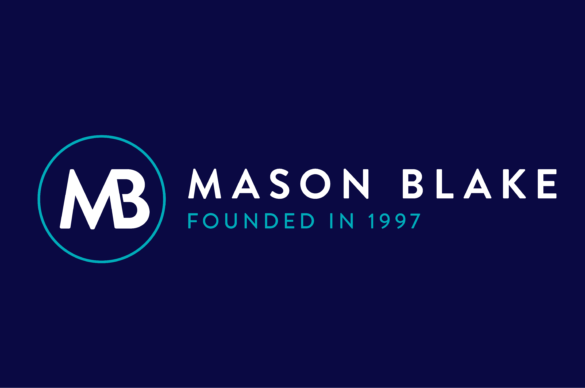dusted / 22 August
Best practices for handling job rejection

Getting an interview is a big step towards earning a position at a company, but, sadly, they don’t always pan out. These moments are made all the more disheartening by the fact that, having prepared for the interview, you have will invested a lot of time and energy into getting the job. But the mistake many candidates make is assuming that they walk away with nothing. This isn’t true; you can come away with more than you went in with, even if one of those things is not a new job. You can get more out of job interviews – even the unsuccessful ones – by following our list of best practices.
Take a moment for self-reflection
It’s not easy to do when you’ve just had a rejection – you’ll likely be focused on moving forward and reflection will feel a little like looking back. But it’s at this time that you need to be most self-critical to figure out what went wrong. You can usually get an idea of where things went wrong based on your circumstances and how far you got through the interview process. For instance, are you switching careers or departments? If you haven’t been getting any interest from your applications – or if you do get interviews, but rarely proceed past the first round – then it might be a sign that this career change isn’t for you, or that you need to start at a more junior position to work your way up.
If you’re routinely making it through to the second or third round interviews but can’t quite close the deal, have a think about what you’ve said and how the interviewers reacted. Was there a moment where you said something that didn’t seem to get a positive reaction from the employer? A negative reaction can range from a stone-faced glare to a polite smile and nod – anything that doesn’t impress or lead to follow-up questions can be considered negative. Once you’ve considered the reactions to what you say, take some time to consider the minor details, like your posture, handshake, etc. It’s unlikely these would be deal breakers on their own, but they certainly help make a better impression.
Send a follow-up email
Even if they haven’t given you the job, there are several benefits of sending a follow-up email. First of all, it keeps you on their radar for future positions, which may become available sooner than you think. Additionally, if you have made a good impression but were unable to secure a placement, a manager that likes you might network on your behalf for other openings or clients they know are looking for new hires.
Follow up an unsuccessful interview with an email that says how grateful you are for the opportunity and that, despite you not succeeding in your application, you are still interested in working for that company.
Bear in mind that, these days, employers don’t always send out notifications to candidates who aren’t selected, so don’t feel like it’s necessary to send a follow-up email. But if you’re particularly interested in that organisation, it could be a good way to keep your name on the hiring manager’s mind.
Ask for feedback (carefully)
While you shouldn’t be afraid to ask for feedback, don’t do it in the follow-up email mentioned above. Employers can be quite tight-lipped about their reasons for not hiring a candidate, in case the candidate interprets them as doing something wrong, such as discrimination – as an aside, if you do feel you have been discriminated against, contact a legal representative immediately. However, it’s not impossible to get feedback and it’s certainly worth the effort.
Your best chance at getting an organisation to give you feedback is to avoid directly asking why you weren’t hired, but circumnavigating with indirect queries. These could include things like, “Did you identify any job qualifications that were missing from my background?” or “Do you have any recommendations for me to improve my resume and CV?”. If you don’t have a direct line to anyone who can help answer these questions, it could be worth talking to your recruiter to see if they have any feedback from the employer or from their own experience.
You should also be careful about your tone. Emails, in particular, have a way of making everything seem firmer and more aggressive. If your email is phrased in a way that suggests you question the validity of their decision, you are very unlikely to hear back from that company ever again. Better still would be to call them directly, because they are more likely to answer verbally.
Keep your skills up-to-date
Job-hunting is practically a full-time job and requires a particular skill set. However, these skills are unlikely to be the same skills that you use for your job. It’s important to stay up-to-date with your specialised areas, whether that means following the stock market, researching new technology, or attending seminars. It’s important to refine your skills to continue to stay at the top of your game. That way, it’s much easier to prove your capability in the next interview.
Go for a walk
This simple idea for dealing with job rejection is one that’s far more effective than people give it credit for. First of all, nature can be therapeutic in many different ways. But perhaps most important is that, after a rejection, getting back into the swing of things can seem daunting. You might just want some time to grieve your job loss, and that’s fine. But limit that time to 24-48 hours maximum because, after that, it’s time to get back on your feet! Taking a walk is a great way to clear your mind, relax your mood, and build motivation for starting the job hunt afresh.
Those are our best practices for dealing with job rejection. If you work in asset management and you’re looking to climb the next wrung in your career, then why not get in touch with us? We want to make the job hunt process as efficient and straightforward as possible. We have a reputation for only representing professionals with exceptional potential who are an ideal fit for a position, so when we give your resume to a client, they already have a great first impression of you.

